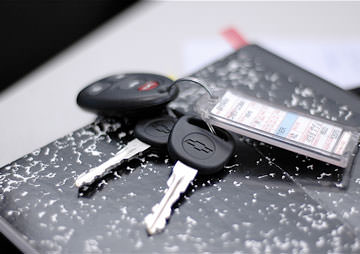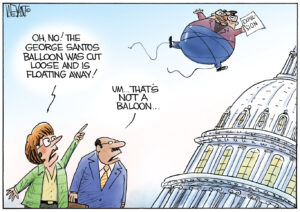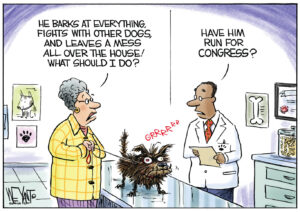Why Are 13 People Dead If GM Knew About Ignition Problem 10 Years Ago?
That's the question that Rep. Fred Upton, R-Mich., is asking after GM issued a massive recall of 1.6 million vehicles. Premshree Pilai
Premshree Pilai
That’s the question that Rep. Fred Upton, R-Mich., is asking after GM issued a massive recall of 1.6 million vehicles.
A problem with the ignition systems can cause those affected cars to turn off while still traveling at high speed, meaning safety features such as air bags can fail. The recall applies to older cars from model years 2003-2007.
Both GM and the National Highway Traffic Safety Administration are investigating why both seem to have ignored complaints from vehicle owners.
According to Reuters, the ignition problem has been blamed in the deaths of 13 people.
Upton, whose Energy committee is going to investigate, has a particular interest in this case, not just as a representative from GM’s home state, but as the sponsor of the TREAD Act.
The Detroit Free Press explains:
Upton was an author of the Transportation Recall Enhancement, Accountability, and Documentation (TREAD) Act, which was passed in 2000 after the Ford Firestone crisis. The TREAD Act allows for civil or criminal penalties against automakers that fail to respond efficiently to safety defects.
“Significant questions need to be answered,” Upton said in a statement late Monday. “Did the company or regulators miss something that could have flagged these problems sooner? If the answer is yes, we must learn how and why this happened, and then determine whether this system of reporting and analyzing complaints that Congress created to save lives is being implemented and working as the law intended.”
— Posted by Peter Z. Scheer
Your support matters…Independent journalism is under threat and overshadowed by heavily funded mainstream media.
You can help level the playing field. Become a member.
Your tax-deductible contribution keeps us digging beneath the headlines to give you thought-provoking, investigative reporting and analysis that unearths what's really happening- without compromise.
Give today to support our courageous, independent journalists.






You need to be a supporter to comment.
There are currently no responses to this article.
Be the first to respond.